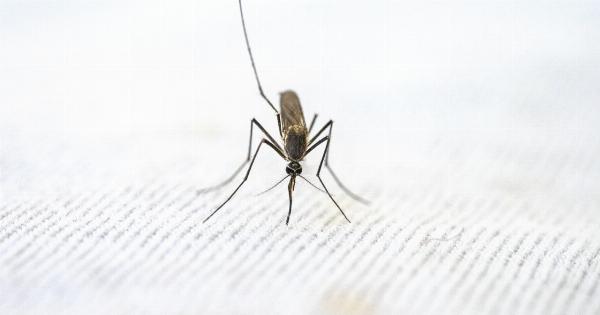Malaria, a deadly disease caused by Plasmodium parasites transmitted through the bites of infected female Anopheles mosquitoes, continues to pose a significant global health threat.
According to the World Health Organization (WHO), nearly half of the world’s population is at risk of malaria, with approximately 229 million cases and 409,000 deaths reported in 2019 alone. However, in a groundbreaking development, scientists have successfully engineered a gene that could potentially eradicate the transmission of malaria entirely by preventing mosquitoes from carrying and spreading the parasite.
Understanding Malaria and Its Devastating Impact
Malaria is prevalent in tropical and subtropical regions, mostly in sub-Saharan Africa.
The disease is particularly lethal among children under the age of five, as well as pregnant women, compromising their immune systems and increasing the risk of complications.
Plasmodium parasites, specifically Plasmodium falciparum and Plasmodium vivax, cause the majority of the malaria cases.
These parasites multiply within the human body, leading to recurrent flu-like symptoms, anemia, and, if left untreated, potentially fatal complications such as cerebral malaria.
The Ongoing Battle against Malaria
Over the years, numerous initiatives have been undertaken to combat and control malaria. These efforts encompass insecticide-treated bed nets, indoor residual spraying, antimalarial medication, and research and development of potential vaccines.
While progress has been made, the complexity of malaria transmission and the ability of the parasite to develop drug resistance have posed significant challenges.
Thus, finding innovative approaches to interrupt the transmission cycle has become a focal point for scientists and researchers worldwide.
Genetic Engineering: A Promising Solution
Advancements in genetic engineering have opened up new avenues to tackle malaria.
Scientists have been studying the mechanisms behind the transmission of the Plasmodium parasite within mosquitoes, aiming to develop genetic modifications that disrupt this process.
Targeting the Mosquitoes: The CRISPR/Cas9 Revolution
One of the most significant breakthroughs in genetic engineering technology came with the development of CRISPR/Cas9.
The revolutionary system allows scientists to precisely edit genes, opening up a multitude of possibilities in various fields, including fighting disease.
Researchers targeted a specific gene within the Anopheles mosquito, the species responsible for transmitting malaria.
By utilizing the CRISPR/Cas9 system, they successfully engineered a gene known as “gene X,” which essentially made the mosquitoes resistant to the Plasmodium parasite.
Gene X: The Key to Eradicating Malaria Transmission
The genetically modified mosquitoes carrying gene X produced a protein that effectively inhibited the development and replication of the Plasmodium parasite within their bodies.
As a result, these mosquitoes became incapable of spreading malaria to humans when they fed on blood.
This breakthrough holds immense potential, as it introduces a new strategy in the fight against malaria.
Instead of targeting the Plasmodium parasite within humans, efforts can now be redirected towards controlling mosquito populations carrying the disease.
Challenges in Implementing Gene X
While the successful creation of gene X presents a promising solution, there are several challenges that need to be addressed before it can have a widespread impact.
One critical concern is the ethical implications of releasing genetically modified mosquitoes into the wild.
Many individuals and organizations emphasize the need for extensive research and rigorous safety assessments to ensure that modified mosquitoes do not have unforeseen consequences on ecosystems or human health.
Additionally, regulatory frameworks and public perception must be considered to develop an effective and widely accepted strategy for implementing gene X.
Collaborative efforts among scientists, policymakers, and communities in affected regions will be crucial for the successful integration of this innovation.
The Future of Malaria Prevention
The breakthrough in perfecting gene X brings hope for the future of malaria prevention. If implemented successfully, it could significantly reduce the burden of the disease and save countless lives.
However, it is important to remember that gene X is just one piece of the puzzle.
Combating malaria requires a multi-faceted approach, including continued research for improved antimalarial drugs, vaccination efforts, and robust healthcare systems capable of providing prompt diagnosis and treatment.
Ultimately, conquering malaria demands sustained commitment, collaboration, and innovation. By harnessing the power of genetic engineering and working together, we can strive towards a world where malaria is nothing but a distant memory.






























